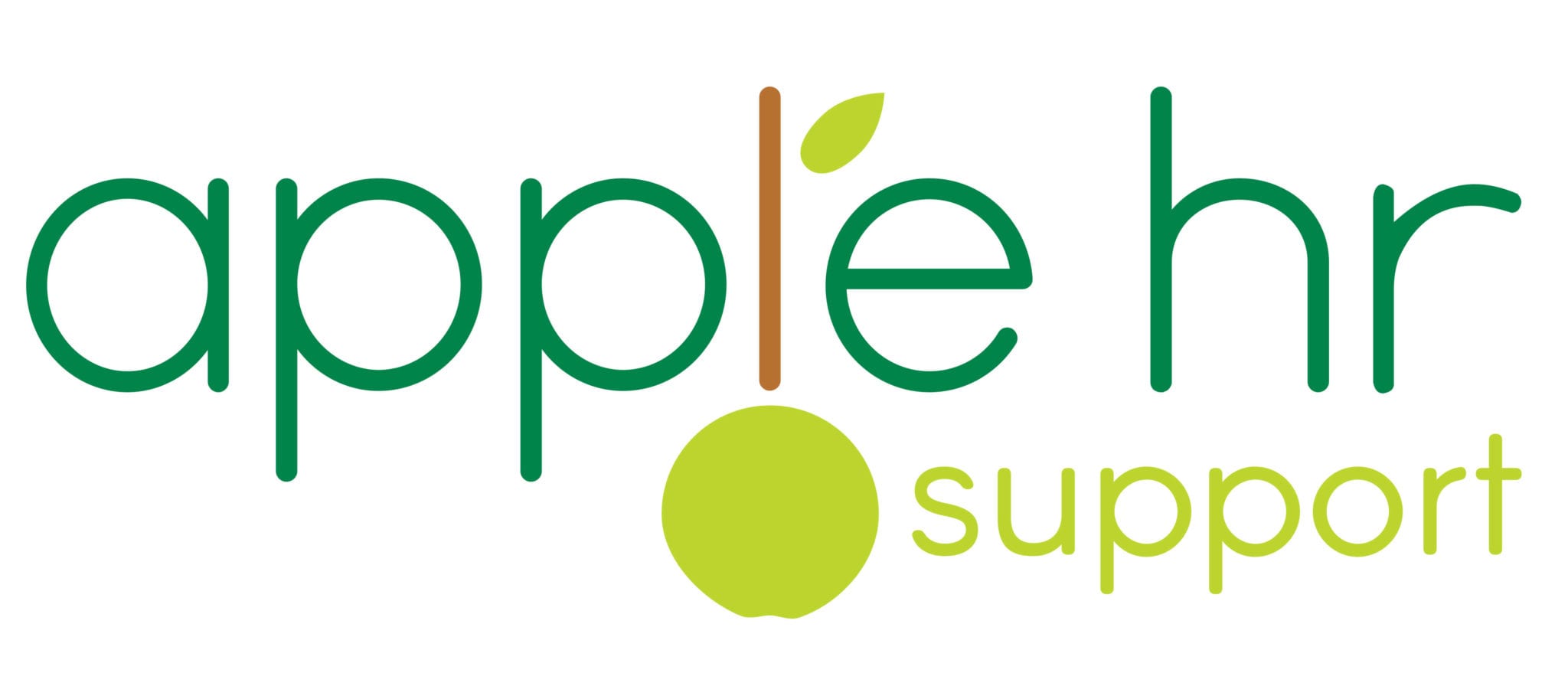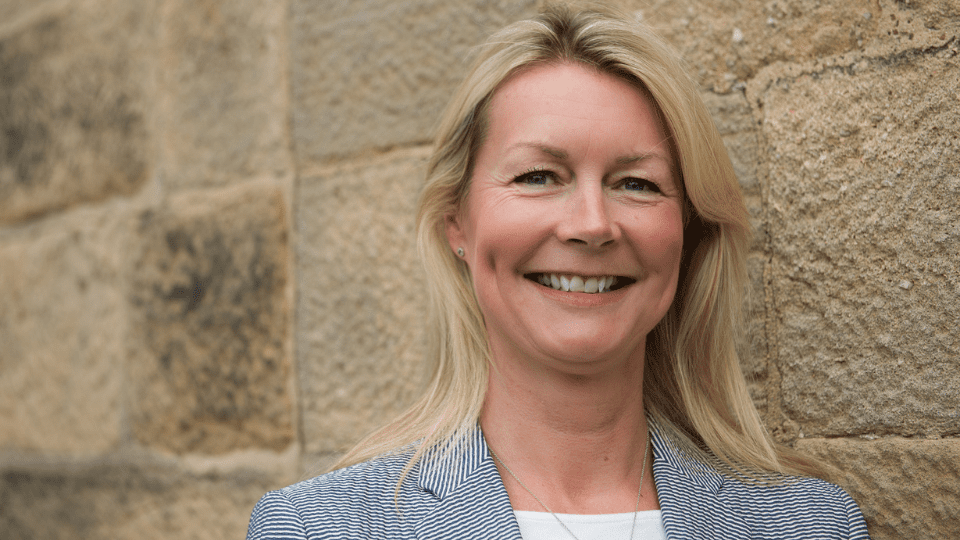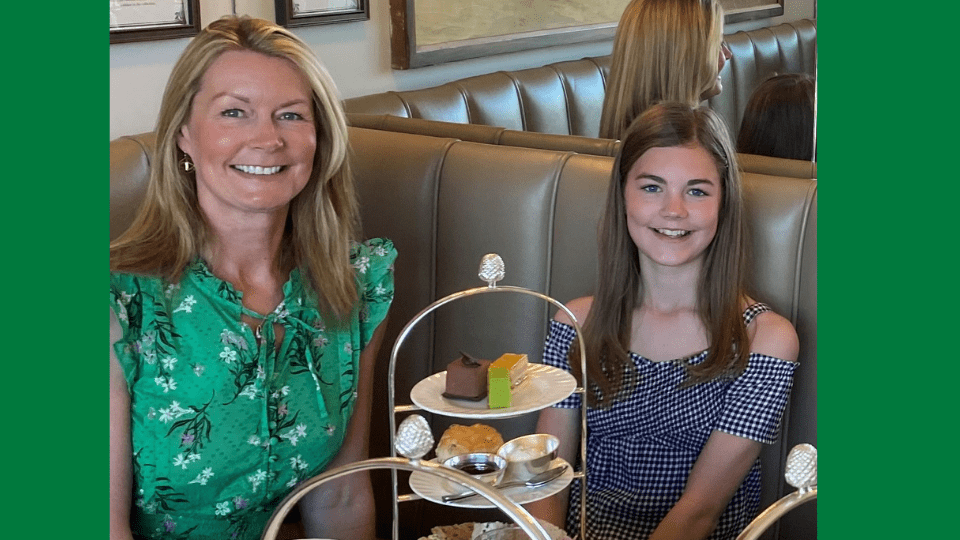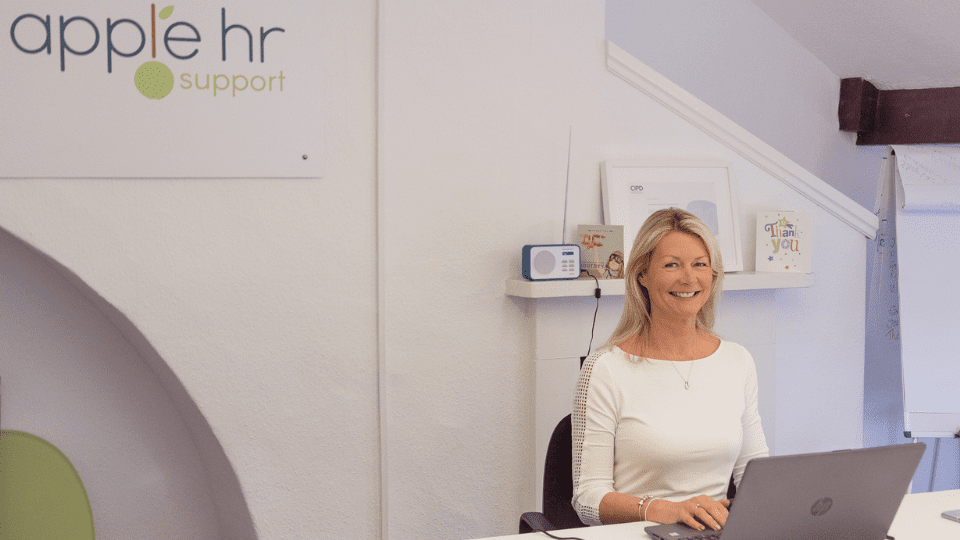Janet joined apple hr support on a part time basis approximately 4 years ago. Prior to this she’d had an impressive HR career working in professional services companies.
Here Janet reflects on her journey to this point, including her experience as a childminder and single parent, and how her own life events influence the way she advises her clients.
How did you begin your career in HR?
I went to Leeds Metropolitan University and did a varied degree. I was most interested in the business management side of things and there was an HR module which I really enjoyed.
Once I’d finished my degree, I was lucky enough to get a job in HR starting as a Personnel assistant in a medium-sized accountancy firm. There was just 3 of us in the Personnel team and the manager was a real taskmaster! But I learnt so much from her, everything was in at the deep end, learning on the job. Whilst I was there, I did my CIPD training at Beckett’s Park – which back then was every Weds from 1-9pm – and I had to make up the time I was out of the office. I basically didn’t have a lunch hour for 3 years but it was worth it to get the qualification which helped me progress in an HR career.
By the age of 25 I had qualified, got some fantastic experience and worked my way up to HR manager. However, I got to the stage where the business was quite traditional in its approach to people matters and trying to influence the group of Partners to move with the times was getting more and more difficult so, after 10 years I decided to leave.
Where did you go next?
I moved to KPMG where things were very different. Whereas before I’d overseen a whole region, at KPMG I looked after the tax function nationally so I was a much smaller cog in a much bigger wheel. The type of work I was doing was less day to day HR and more strategic reporting which is not what I’d done before. I built on my experience and my knowledge and I worked there for 11 years.
My daughter Eva was at primary school by then and as a single mum I was doing lots of travel for 9am meetings at Canary Wharf and in the Glasgow office. I wasn’t at home for Eva as much as I’d have liked and felt I’d lost that spark for the job. So, I did something that people said I was either brave or mad to do – I trained to be a childminder! This meant I could be there more for Eva and focus on being a mum whilst she was still young. I did it for 3 years but I kept my hand in with my HR skills. I knew Kate Appleyard through a mutual friend and I knew Kate was quite busy – she asked if I wanted to come and help for a few hours a week when I wasn’t busy childminding. I did that for a couple of years and gradually those hours increased and increased, and I was nearly working full time doing the two jobs, so Kate suggested I started working with her on a more formal basis.
I thought it was an opportunity I probably wouldn’t get again to work with someone like Kate who is really keen on work life balance. And the rest is history.
Did the insight from being a Mum and a childminder liaising with lots of other busy parents change the way you advise companies in terms of parenting and parenting policies?
Absolutely. I personally know the stress of those busy mornings when you are rushing to drop your child off in childcare or school and then catch the train into the city to work – it’s one of the most stressful times of day for most working parents.
So, when I work with clients now, I try to encouraging them to take a step back and think about what’s going on outside of work for their employees. Make working easier for people – why does it have to be so hard, why does it have to be a 9 o’clock start? Let’s think about it more creatively.
Do you think there’s been a change in attitude towards supporting parents in the workplace?
It very much depends on the business. I have clients at either end of the spectrum. One company who used to have everybody in the office all day with no flexi-time or many part time options has transformed its approach. I’ve worked with them on their new hybrid working policy and it is fantastic. Staff can work up to 3 days at home going forward, it’s a totally different way of working.
I was recently listening to the radio and a lot of the guests were parents who were saying if they had to go back into the office every day they’ll leave and find somewhere else to work. The pandemic has changed everything – we’ve got used to that flexibility. It can reap benefits for employers and employees alike.
What would you say is the part of your job that you love the most?
I think for me it’s the variety because I’ve come from in-house HR in a big company where it was very internal-looking, to working with such a varied number of clients of different shapes, sizes, sectors – all have their own nuances and I can draw on my knowledge of how other companies operate to add real value.
What part of your job do you not like or wish you didn’t have to do?
I don’t think there’s anything I don’t particularly like. I am quite an organised person so I suppose the most challenging aspect of what I do is the unpredictability. When you’re dealing with people, anything can happen! As in most professions clients can be demanding and want answers to complex questions quickly so that can sometimes be a challenge.
You’re a qualified Mental Health First Aider – is that something that the apple hr support team are really passionate about?
Absolutely, that just stems from our interest in people and how we care for people and treat them with dignity and respect.
Speaking personally, like many people, I’ve had ups and downs in my life – my dad died when he was only 52 years old which was a total shock, I had a baby and shortly afterwards my husband left me and I’m now divorced. These are all life-changing experiences. Returning to work after maternity leave as a single parent was very hard for me and my mental health suffered. My job was my ‘constant’ and if I had got to the point where I was too ill to work, that would have been really tough.
For a lot of people, work is the constant to keep them going. In those instances, we need to help keep them at work in whatever shape or form, and make adjustments we can. If we can help business owners and managers to understand the importance of mental health in the workplace then they will undoubtedly see an increase in loyalty and engagement as well as productivity.
Do you think organisations are wanting to be more proactive in their approach and how they look after people?
I do. Unfortunately, there are still businesses out there who think they’ve ‘ticked a box’ by training a mental health first aider whilst their values and behaviours don’t reflect it.
But those are fewer than they used to be. For many clients I’ve worked with the pandemic has helped to really change things. It’s not just employees that have found it hard but the business owners too. The bosses have had to make decisions about letting staff go, putting people on furlough, reducing hours, you don’t make those decisions lightly, they will have been kept awake at night.
Have you noticed any patterns in the types of enquiries you’ve been getting recently?
There’s probably a baby boom coming out of the pandemic so definitely companies are looking for help dealing with maternity queries.
I’d say that looking to return people to work and bringing staff back has been a consistent conversation.
The real positive that I’m seeing is, compared to this time last year when everyone was still in shock at the speed of Lockdown and the challenges it brought with furlough and downsizing, it’s really turned a corner for our clients who are now concentrating on future planning. We’ve got through this horrible time, let’s look at flexible working and our benefits package and have a bit of a refresh and a re-think about what we offer our staff and how we can attract the best talent. I think it’s hitting home that salary isn’t necessarily the most important reward for employees, it’s as much about lifestyle and flexibility
For advice and support from Janet, get in touch.



